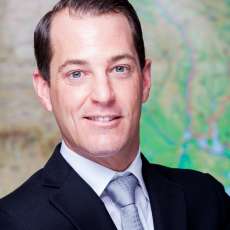Habau PPS specializes in pipeline and plant construction and maintenance solutions, for the oil & gas industry. The company has been present in Romania since 2007 and is part of the broader Habau Group headquartered in Austria. The Group counts over 100 years of experience in the construction segment, 5,000 employees and 1.5 Billion turnover.
Habau is one of Europe’s leading construction companies, and in Romania you have been involved in high profile projects in the oil & gas segment, such as BRUA – can you introduce us to your current capabilities?
Indeed our HQ is in Austria, however we have subsidiaries all over Europe and opened our office in Romania 12 years ago, initially focused on industrial parks. Working with Petrom as of 2008 came as a natural decision given our history and relationship with OMV in Austria. We currently have 300 employees in the country and achieved over 35 Million Euro turnover in 2018, in contrast to our humble beginnings of 15 employees. BRUA was a game changer last year and gave us a chance to grow exponentially. Overall we have built a specific niche constructing pipelines and affiliated solutions for the oil & gas sector, serving clients such as OMV, Romgaz, Transgaz or Conpet.
Romania covers 479 km out of BRUA’s regional infrastructure, starting in Podisor, a village close to Bucharest and up to Recas, next to Timisoara. Habau partnered INSPET to build one of the three compressor stations for BRUA, needed to compensate for the weaker pressure in Romania, namely the one close to Recas. BRUA was also divided into three lots, 180 km from Podisor, 140 km from Craiova and the last 160 km from Vulcan up to Recas. Habau has been the leading pipe constructor for lots two and three, starting from September 2018. We now have in Lot 3 72 km built, for which we are pressure testing as the final step and the rest of the work towards Bucharest is under way. We are well positioned for the April 2020 deadline.
Are there other projects currently in the tendering phase, do you have your sights set upon any particular ones?
We are keen to take on additional projects but the reality is that we did not bid on some of the recent tenders due to a rather serious problem we are facing regarding human resources. We are in a position where we need to import human resources from countries such as Ukraine, Macedonia, Montenegro or Vietnam to do the necessary fieldwork. Our resources have been directed at key projects surrounding lots two and three for BRUA where we are in fact bidding and hoping to be selected.
There are three major projects at the moment, BRUA, another development in the Northern side of Romania, as well as a Black Sea Pipeline in the bidding phase. Transgaz also has a number of smaller projects under way, with thousand of kilometers scheduled within the next decade.
Human resources have come up frequently as a serious industry pain point – other than importing talent from other countries how are you tackling this challenge?
It is not enough to import, of course, rather we are working on multiple fronts to attract, train and retain talent in our industry. For example, we are collaborating with the Austrian Embassy to open training centers to educate young people – our first class starts in September this year. One idea I believe in is actively appealing to Romanians working abroad through fairs and such, and making them aware that the work climate at home has changed. There are large opportunities to find great work here, under good conditions and well remunerated as well. In the construction industry alone there is a gap of hundreds of thousand of employees and bringing them from non-EU countries is just not a viable solution for the long run.
Having now spent over a decade in Romania’s business ecosystem, what is your assessment of the ease of doing business, and what are some of the challenges you have come across?
There are definitely things happening here and an overall well developing business environment. Of course the number one consideration for any investor is the political stability factor, which can stand to improve in Romania. The past few years have seen more changes than any of us can count, and legislation can even transform from one day to the next. This is a real challenge that the legislators and regulators should look to appease, especially in the offshore sector.If there is some progress than is worth noting, though. While ten years ago when we first arrived the management of key administrative state institutions were changed along with political parties, nowadays there is continuity in management functions – I believe this to be key in ensuring the stability and long term vision for such important state institutions, independent from politics. From a bird’s eye view, our experience has been overall positive and I believe there is room for more investments to be made.
What are your priorities for Habau PPS in the coming few years?
We are committed to the projects we are already involved in and intend to consolidate our capabilities for the new projects under tender. One thing we are still open to is inorganic growth through the acquisition of local companies, ensuring strategic growth, when the time is right. As mentioned the number one challenge remains that of human resources, which is being addressed through an open recruitment campaign, even offering employees to work across multiple locations for flexibility and know-how transfer. We are also expecting new projects in the region, such as Moldova, but we consider Romania the hub for Central and Eastern Europe.






